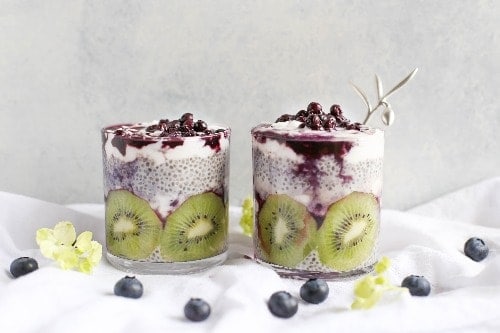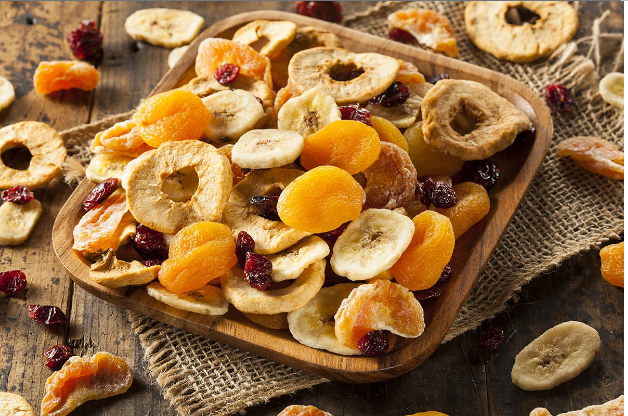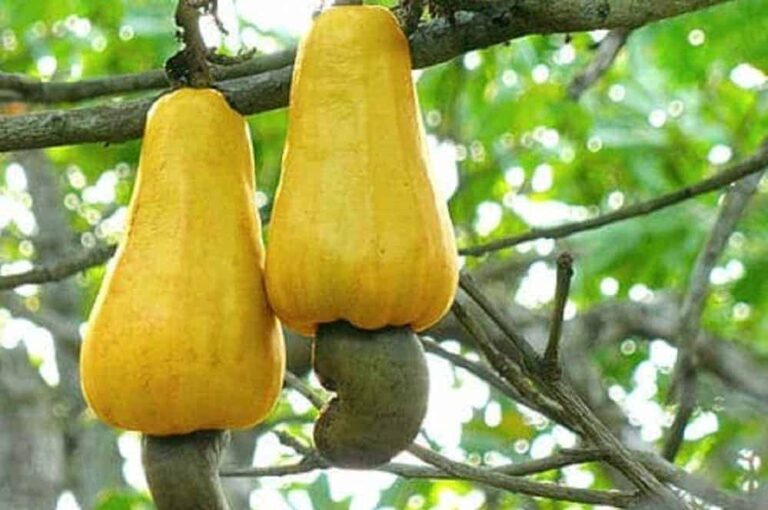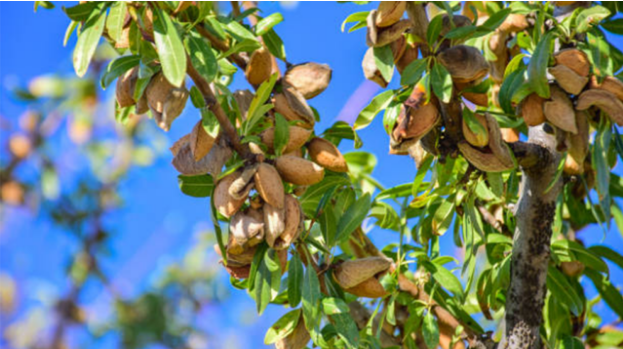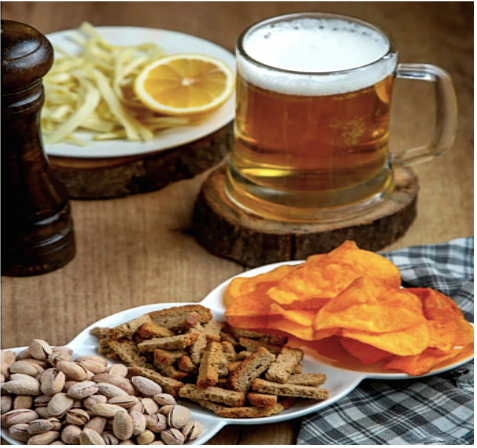The Nutritional Benefits of Chia Seeds
The Nutritional Benefits of Chia Seeds
Chia seeds come from the plant Salvia hispanica, which is closely related to the mint plant. They were an essential staple to the Aztec and Mayan diets in their civilizations. “Chia” means strength in the Mayan language. As ancient a staple as chia seeds are to diets, only recently have they become a popular food item again. This popular food is not only tasty, but the nutritional benefits of chia seeds are also numerous as well.
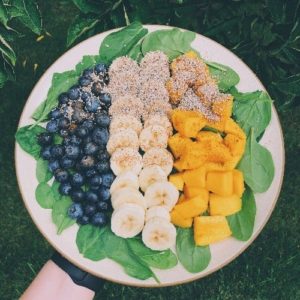
Chia Seeds are Full of Antioxidants
Chia seeds are absolutely loaded with antioxidants, which have various health benefits. Antioxidants are compounds that your body produces, and they are also found in foods. They can help your body defend against damage from free radicals. When free radicals accumulate, your DNA and other cells feel stress, and this increases your chances of heart disease, type 2 diabetes, and cancer.
Fortunately, eating a diet rich in antioxidants can ward off this oxidative stress and reduce the risk of these diseases. Food scientists use the FRAP (ferric reducing ability of plasma) test to determine the antioxidant content in food. This test measures the antioxidant content by how well the food can neutralize a free radical.
Antioxidants in chia seeds also help extend the shelf life of the food, keeping them from going rancid. The seeds actually possess their own natural preservatives, helping you to keep them on your shelf for a more extended period.
Chia Seeds Have Tons of Fiber
Are you looking for more fiber in your diet? Although one ounce of chia seeds has 12 grams of carbohydrates in them, 11 of those grams contain fiber. In fact, chia seeds are one of the best sources of fiber in the world, coming in at 40% by weight. Our Bulk Chia seeds can absorb 10-12 times their weight in water. They become gel-like in the stomach, slowly incorporated into the digestion tract. Theoretically, this should help you stay fuller for more extended periods of time.
A diet with the right amount of fiber prevents constipation and promotes regularity for a healthy digestive tract. Regular bowel movements are absolutely essential for the daily excretion of toxins through bile and stool.
Getting enough fiber is essential for individuals looking to lose weight, and for those with blood sugar issues. Fiber is excellent for keeping your blood sugar low because it neither raises the blood sugar nor requires insulin to get rid of it. In addition, it can help your stomach maintain an excellent level of health. Fiber feeds friendly bacteria in your intestines and keeps the gut flora in your stomach well-fed. The fiber in chia seeds works similarly to a water-soluble fiber called glucomannan. Several studies have shown that glucomannan could lead to weight loss.
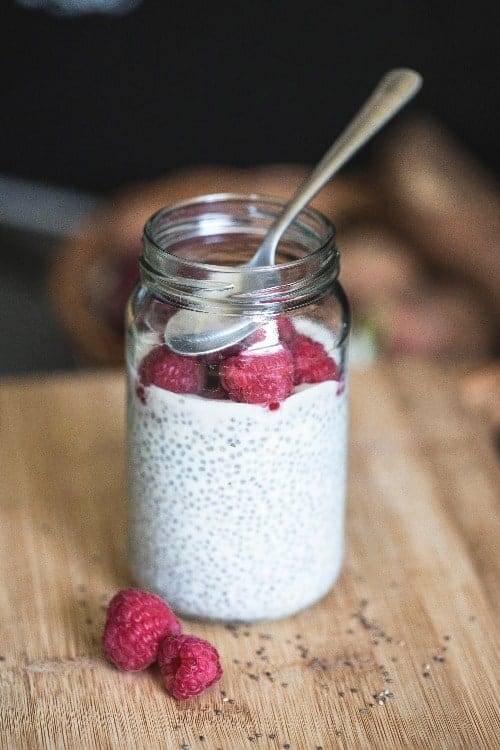
Chia Seeds Have the Protein We Need
Chia seeds are high in protein. For those on plant-based diets, chia seeds can be a fantastic solution to get optimal levels of protein in a diet daily. Chia seeds contain about 14% protein by weight, which is high compared to many plants. The seeds contain an excellent balance of amino acids, which enable your body to make use of the high protein content.
Protein is another vital ingredient in weight loss. In studies, high protein intake has been shown to reduce obsessive thoughts about snacking. In another study, the increase of protein from 15% to 30% of calories in overweight women helped them eat 441 fewer calories each day. Studies suggest that if you need to lose fat from your belly, you should replace the majority replacing the majority of your calories and some of your carbs and fats with protein. Overall, chia seeds may help to play a part in the battle of the stomach bulge while satisfying your snacking needs.
Chia Seeds are Heart-healthy
Given the fact that chia seeds are full of protein, fiber, and omega-3 fatty acids, they have the chance of helping those at risk for heart disease beat the odds. Omega-3 fatty acids are an essential fat that everyone must get from their diet. However, when asked, most people simply do not know what they are.
Omega-3 fatty acids are a family of fats that include ALA (alpha-linolenic acid), DHA (docosahexaenoic acid), and EPA (eicosapentaenoic acid). While ALA is mostly found in plant-derived sources, DHA and EPA occur primarily in animal foods and algae. Foods that are high in omega-3 fatty acids include our superstar chia seeds, oily fish, fish oils, flax seeds, and walnuts.
In recent studies, rats were tested looking for the link between heart health and chia seeds. Testing showed that chia seeds can lower certain risk factors for heart disease, including levels of triglycerides, insulin resistance, inflammation, and levels of belly fat. According to results, chia seeds may also improve levels of “good” HDL cholesterol. HDL (high-density lipoprotein) removes unhealthy cholesterol from the body, acting as a vacuum while removing plaque build-up from the arteries.
Some studies were done on individuals looking into the effects of chia seeds on hypertension, which is another name for high blood pressure. Hypertension can be a reliable indicator of heart disease. Hypertension has the ability to lead to severe health complications and increase the risk of heart disease, stroke, and sometimes, even death. In the studies, chia seeds significantly reduced blood pressure in individuals. However, it is unlikely that the effects of chia seeds will not have an overall impact without other dietary and fitness overalls in lifestyle to those at risk for heart disease.

Bone Health
Chia seeds have the ability to help with the health of our bones. Why is this important? Our bones are the system that supports our bodies, helping us to move in the world. They also protect vital organs like our brain and heart from damage caused by an injury. If we do not get the right nutrition or enough exercise, our bones could become weak and unable to protect and support us. Broken bones, otherwise known as fractures, can cause considerable pain, along with health problems that can sometimes last a lifetime.
The great news is that it is never too late to start taking care of your bones. Diets rich in calcium can keep bones healthy and strong for years to come. The calcium content in chia seeds is quite impressive. They contain 18% calcium in a single ounce of chia seeds. Gram for gram, this measurement places chia seeds higher in calcium than even most dairy products. Due to their high calcium content, chia seeds are considered an excellent source of calcium for those vegans, lactose intolerant, and anyone who does not consume dairy. However, if you do consume dairy, they are still a fantastic calcium supplement in the diet.
Chia Seeds Reduce Blood Sugar Levels
In cases of untreated type 2 diabetes, high fasting blood sugar levels can be a typical symptom. These high blood sugar levels can also be associated with a myriad of other severe, chronic conditions, including heart disease, which we mentioned above. Furthermore, temporary spikes in blood sugar may also contribute to health problems when they occur on a regular basis.
Studies done in animals show that regular consumption of chia seeds may also have the ability to improve blood sugar control, insulin sensitivity, and the ability to stabilize blood sugar levels after a meal. Some research in human testing does confirm this. It was shown that when individuals ate bread that contained chia seeds after a meal, as opposed to bread that did not contain chia seeds, their blood sugar quickly lowered.
Chia Seeds Reduce Inflammation
Inflammation is your body’s angry reaction to an infection or injury. Do you remember the last time your skin was red or swollen? This memory is an excellent example of inflammation in the body. While inflammation can help your body ward off bacteria, viruses, and various infectious agents, and even improve your body’s healing time, it can sometimes do the opposite and cause significant harm to your system.
The harm that takes place can take the form of chronic inflammation. Chronic inflammation may not have visible signs, but it can be quite detrimental to the body. It often comes with the risks of heart disease and cancer. It can be measured by looking at inflammatory markers in the blood. While some unhealthy lifestyle choices such as smoking, being a couch potato and indulging in poor diet choices lead to chronic inflammation, foods like chia seeds can reduce the blood levels of inflammatory makers and reverse some of those effects.
In one study, 20 people with diabetes ate 37 grams of chia seeds daily for three months. In this period, they reduced the inflammatory markers in their bodies by 40%. Some participants in the study tried doing the same thing by ingesting the same amount daily of wheat bran in the same amount of time, but they did not experience the same positive results.
Chia Seeds May Help with Diverticulitis
Diverticulitis is an excruciating stomach condition from which pouches in the colon begin to protrude outward on the wall. This condition causes them to become infected and inflamed. According to statistics, close to 50% of the population is presumed to have the disease by the time they are around 50 years of age. From the age of 80, statistics show that 65% of the population is thought to be suffering from the condition.
The fiber in chia seeds, which we examined earlier, may help reduce pressure and inflammation in the colon.
Tips and Risks
It is absolutely vital to remember that chia seeds can absorb up to 27 times their weight in water. One individual who had a history of swallowing problems developed esophageal obstruction after he ingested an entire spoonful of dry tablespoons followed by a glass of water. The seeds then formed a thick gel in his esophagus. He was unable to then swallow without the treatment of medical professionals. While this was a rare case, it highlights the need to mix chia seeds into another food source before ingesting. This process is essential to those individuals with a history of swallowing difficulties. Additionally, small children should not be given chia seeds without proper adult supervision.
Remember, to achieve optimal health, do not focus on just one food, but instead, reach toward getting a variety of essential foods your body craves and needs. While one food will not be a fix-all for everything, proper diet and exercise is the best tool for optimal health.

Easy to Incorporate into Your Diet
Chia seeds are extremely easy to incorporate into your diet. You can add chia seeds to any food you can think of and they will take on that flavor. Chia seeds do not need to be ground up like flax seeds. This makes them easy to throw into anything you feel like in the moment. The seeds may be eaten raw, soaked in your favorite juice, or added to your morning porridge. Throw them in your post or pre-workout smoothie or add them to delicious baked goods. You can even add them to rice dishes or use them to thicken sauces.
They also make a fantastic egg substitute in vegan dishes. When baking, try mixing one tablespoon of chia seeds with three tablespoons of water, then let them sit for a few minutes. A gel will form that can be used instead of eggs for baking all of your favorite dishes.
Are you a green smoothie fan? Chia seeds are fantastic for that! For a phenomenal green chia smoothie, blend 2 cups of spinach, 1.5 cups of water, and two tablespoons of chia seeds. Then add one peeled orange, a cup of strawberries, and a cup of frozen blueberries and blend again.
Chia Seeds: Just the Best
The nutritional benefits of chia seeds are many. These nutritional powerhouses can help you and your body feel fantastic. These benefits range from bone health to gut health and more. Wholesale Nuts And Dried Fruit has only the freshest seeds to get you stocked up for all of your health and wellness needs. Their nuts and seeds are carefully selected, packed, and shipped with care to your doorstep. Shop their chia seed selection today.

